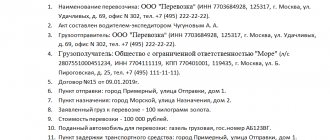Disciplinary sanctions under the Labor Code can be applied as a consequence of a disciplinary offense committed by an employee. The possibility of its use is established by Ch. 30 of the Labor Code of the Russian Federation, its concept is defined here. This is considered non-fulfillment, as well as improper fulfillment by an employee, through his fault, of the duties assigned to him at work.
Based on legislative norms (Article 192 of the Labor Code of the Russian Federation), the employer can apply the following types of disciplinary sanctions:
- comment;
- rebuke;
- dismissal for certain reasons.
Based on the definition of a disciplinary offense, in order to classify an employee’s actions in this way, it is necessary that they be illegal, guilty and contain a violation of the established work schedule or the employee’s duties.
The list of measures indicated in this list applied to violators of labor discipline is exhaustive. This means that it cannot be supplemented by the rules established by the internal labor legislation of the enterprise.
It is prohibited to apply such types of penalties that are not defined by law, as well as by statutes and regulations on discipline.
Types of labor penalties
Legislatively, the types of disciplinary sanctions applied by an employer to an employee are enshrined in Article 192 of the Labor Code of the Russian Federation.
They are divided into two types:
- General (named in the Labor Code of the Russian Federation);
- Special (listed in special regulations).
The table will help you understand in detail what types of disciplinary sanctions are provided for by the Labor Code of the Russian Federation, and what types are provided for by other acts.
| Kinds | Are common | Special |
| What are provided | Art. 192 Labor Code of the Russian Federation | The norms of Federal laws, charters, regulations on discipline |
| To whom do they apply? | To all employees working under an employment contract, regardless of specialization | For certain categories (military personnel, civil servants, railway transport workers, employees in the nuclear energy sector, etc.) |
| Types of penalties |
|
|
* The charter should be understood as a normative act of federal significance approved by law. This point deserves attention, since the charter also refers to local acts of organizations. So, if the latter contradict federal acts in terms of imposing penalties, their provisions cannot be applied.
Types and procedure for imposing penalties under the Labor Code of the Russian Federation
If an employee’s work activity is not regulated by special acts (for example, the Federal Law “On the Prosecutor’s Office of the Russian Federation”, the Decree of the Government of the Russian Federation “Regulations on the discipline of railway transport workers of the Russian Federation”, etc.), then, according to the Labor Code of the Russian Federation, only the following types of punishments can be applied to him.
Comment
The imposition of a disciplinary sanction in the form of a reprimand is the most “popular” punishment applied by the employer.
The legislation does not clearly define for what offense a certain penalty is imposed. The choice is at the discretion of the manager. Most often, a reprimand is imposed for a violation of mild severity, that is, which:
- is essentially a minor violation of labor discipline;
- caused minor damage;
- done for the first time.
An example of such an offense would be being late for work.
The decision to reprimand an employee must be documented. However, before this, the employer must demand an explanation from the violator. The latter must provide it within 2 days from the date of presentation of the request by the employer. Below is a sample order of disciplinary action in the form of a remark.
Neftetransservis LLC ORDER No. 1100/64-3 Moscow December 15, 2019 About disciplinary action
Due to the absence of chief engineer A.P. Voikov from the workplace. December 14, 2021 from 09:00 to 10:00 without good reason.
I ORDER:
Announce a remark to the chief engineer Anatoly Vladimirovich Voikov.
Base:
- memo from the head of the department dated December 14, 2019;
- explanatory note from chief engineer Anatoly Vladimirovich Voikov dated December 14, 2021;
- certificate of absence from work dated December 14, 2021.
Head of the organization: Brazhsky I.G.
Head of department: Davydov O.I.
Head of Human Resources: Gerasimenko A.Yu.
The employee is familiar with the order: Voikov A.V.
December 15, 2021
The consequences of a reprimand for an employee are hardly noticeable: information about the reprimand is not entered in the work book or personal card, and such punishment in itself does not entail any serious negative consequences. However, at the same time, it serves as a warning: if another violation is committed during the year, the employee may face a reprimand or even dismissal.
Please note that there is no oral reprimand as a separate penalty according to the Labor Code of the Russian Federation. There is only a “remark”, which is formalized by an appropriate order. According to Article 193 of the Labor Code of the Russian Federation, the order (instruction) of the employer to apply a disciplinary sanction is announced to the employee against signature. This means that the remark has its formal expression in the form of an official document, so it cannot be considered “oral”.
Rebuke
The imposition of a disciplinary sanction in the form of a reprimand is an intermediate measure of punishment, which is more “strict” in nature than a reprimand, but more “soft” in comparison with dismissal. If a remark is just a warning, then a reprimand is the “last” before dismissal.
It is declared in cases where:
- The employee had already been disciplined for a year.
- A violation of moderate severity was committed.
- The offense resulted in material damage, but not on a large scale.
To issue a reprimand, it is not necessary that the employee already has one penalty on his record. It can be applied even if the employee has never been subject to disciplinary action.
An example of an offense for which a reprimand may be given is truancy. A sample order for a disciplinary sanction in the form of dismissal for absenteeism can be seen below (it is also a sample order for a reprimand). Although, at the same time, absenteeism is a sufficient reason for dismissing an employee, in practice such a measure is rarely used.
A reprimand is not much different from a reprimand: information about it is also not included in the labor report and, as such, it carries consequences in itself. However, for example, if you want to appeal the dismissal as a type of disciplinary punishment, and you have been reprimanded for a year before the dismissal, the court will take the position of the employer and leave its decision in force. At the same time, as judicial practice shows, if there are comments (rather than reprimands), the chances of challenging the dismissal are significantly higher. Also, a note about a reprimand is entered into the employee’s personal card, but in case of a reprimand, not.
Before issuing a reprimand, the employee is also required to provide an explanatory note, which he must provide within two days. Only after this the manager can document the penalty. A sample order for disciplinary action in the form of a reprimand is provided below.
Stroychermet LLC ORDER No. 1800/65-2 Moscow December 14, 2021 About disciplinary action
Due to the absence from the workplace without good reason of the chief engineer Ignat Vasilievich Budko during the working day on December 13, 2021 from 9-00 to 18-00
I ORDER:
Reprimand chief engineer Budko Ignat Vasilievich.
Base:
- memo from the head of the department dated December 13, 2020;
- explanatory note from chief engineer Budko Ignat Vasilievich dated December 13, 2021;
- certificate of absence from work dated December 13, 2021;
- working hours schedule for 2021.
Head of the organization: Gromov I.G.
Head of department: Lupko O.I.
Head of Human Resources: Tarasenko A.Yu.
The employee is familiar with the order: Budko I.V.
December 14, 2021
Dismissal
Disciplinary action in the form of dismissal is an extreme measure of punishment for an employee.
It applies in the following cases:
- Being disciplined twice or more in a year.
- Absenteeism. Absence from work without good reason for more than 4 hours in a row is already considered absenteeism (if the employee has been absent all day, this is, of course, also absenteeism). The following are not considered absenteeism:
- Absence by order of the employer on a day off or during vacation;
- Absenteeism, in the case when the schedule provides for exceeding the normal working hours in accordance with Article 91 of the Labor Code of the Russian Federation;
- Absenteeism in case of changes in the shift schedule, if the employee was not familiarized with it under signature;
- Visiting the court on a subpoena, the police, the military registration and enlistment office, as well as detention, arrest or taking into custody;
- Visit to the hospital to donate blood if the employee is a donor.
- Appearing at work drunk, or under the influence of drugs or toxic substances . Even if the employee did not reach his workplace and did not start work, but at least entered the territory of the institution (for example, passed a checkpoint) during working hours in this form, this is already sufficient grounds for dismissing him.
- Disclosure of secrets protected by law, which became known to the employee due to the performance of his job functions. This category of “secrets” also includes personal data of citizens.
- Theft, embezzlement, intentional destruction or damage to property at work, if the fact of commission is established by a sentence or a judge’s order. The theft of not only the employer’s property, but also that of other employees, as well as third parties, is taken into account. These actions must be proven by a court decision.
- Violation of labor protection requirements that resulted in serious consequences or created a threat of their occurrence, if this is proven by the commission/authorized labor protection officer.
- Loss of employer confidence for those who work with money or goods (cashiers, salespeople, collectors, storekeepers). In this case, loss of trust occurs only as a result of the employee’s physical actions that violate the rules for handling the listed values. They can be counting, weighing, facts of shortage, use for personal purposes. They are established through inventory, test purchases, and inspections. The subjective opinion of the employer, without the employee admitting any violations and proven facts, cannot serve as a basis for dismissal.
- Loss of trust of the employer as a result of failure to take action to resolve the conflict, if the employee is a party to it, provision of false information of a property nature about himself and his family members, if the need to provide it is provided for by federal legislation.
- An immoral act committed by an employee performing educational functions. Only if it was committed at the place of work. Such an offense may include appearing drunk, fighting, or using obscene language. These actions, committed in everyday life or even in society, but not during the performance of one’s work duties, are not grounds for dismissing a teacher.
- Making an unreasonable decision that caused damage to the organization’s property by the manager, his deputy, or accountant. That is, on this basis, only employees in management positions who have the right to make appropriate decisions and dispose of material assets can be dismissed. A decision that was made:
- on an emotional level without taking into account objective factors;
- based on incomplete or incorrect data;
- when certain information is ignored;
- in case of erroneous interpretation of information;
- without proper preparation: consultations, analytical activities, data collection, calculations and research.
- Gross violation by the manager or his deputy of his labor duties. Even a one-time violation can serve as grounds for dismissal, and it is considered gross if it could cause harm to the health of other employees or damage to the organization’s property.
- Repeated violation of the charter of a general education organization within 1 year. Applies only to teachers.
- Disqualification for 6 months or more . For athletes who have entered into an employment agreement (contract).
- Single violation of anti-doping rules. For athletes carrying out their activities under an employment agreement (contract).
Example No. 1 . Petrov S.G. I was systematically late for work by 30-40 minutes. After another such delay, the director of the enterprise called him to his office and announced that he was fired for repeated violations of labor discipline. Petrov S.G. wrote an explanatory note, signed the order to impose a disciplinary sanction, but went to court. He considered the director’s actions illegal, since he had not previously been subject to disciplinary action. The court declared the order illegal, since dismissal as a disciplinary sanction can be applied to an employee in the event of repeated (2 or more) violations of labor duties. Moreover, such violations must be documented, namely by an order from the manager to impose a disciplinary sanction. In this case, even though Petrov was late for work, he was never brought to justice in the prescribed manner, which means there were no grounds for dismissal.
Example No. 2 . Petrov S.G. I was regularly 30-40 minutes late for work, but the last time I was 4 hours 15 minutes late because I was picking up my wife from the plane (the flight was delayed). Upon arrival at work, he was called to the directorate, where he was informed of his dismissal due to absenteeism. The employee wrote an explanatory note indicating the reason for absenteeism, but management considered it disrespectful. In this case, the manager’s actions are legal and justified, since absence from work for 4 hours or more is considered absenteeism. And in case of absenteeism, you can dismiss an employee, even if disciplinary sanctions have never been imposed on him before.
Dismissal as a punishment for labor misconduct is also formalized by order of the employer after receiving written explanations from the perpetrator no later than 2 days after the request was made. In this case, one order is issued, not two (imposition of penalties and dismissal - in one document). If the employee refuses to draw up an explanatory note, a report is drawn up with the appropriate note, where the violator must sign. If he refuses to do this, witnesses are invited to confirm this fact and sign the document.
Information about the imposition of this penalty is entered into:
- Work book;
- Private bussiness;
- A register of persons dismissed due to loss of confidence, in cases where the dismissal occurs precisely on this basis.
The employer does not have the right to impose penalties in the form of dismissal on pregnant women, temporarily disabled women and employees on vacation. This is prohibited by law.
A minor can be dismissed only with the consent of the Rostrudinspektsiya and the Commission on Minors' Affairs (Article 269 of the Labor Code of the Russian Federation).
Employers should remember that dismissal should only be used if correcting the employee by imposing another penalty is not possible. Disciplinary liability of an employee in the form of dismissal is extremely rare in practice, and the courts and state labor inspectorate in such cases usually take the position of the employee.
The order of their application
Labor discipline is established in the company taking into account the Labor Code and internal labor regulations. By signing the job description and other documents when applying for a job, the employee makes it clear to the employer that he understands his job responsibilities and is ready to comply with the accepted routine.
How to properly file a disciplinary sanction?
- When an employee with a penalty continues, regardless of the reasons, to evade fulfillment of duties.
- When there is a gross violation of discipline. This includes absenteeism lasting one working day, as well as more than 4 hours in a row.
- Showing up at work in any category of intoxication.
- The employee made public a secret known to him due to his official duties.
- In case of theft, embezzlement or destruction of property, dismissal is guaranteed immediately when this fact is established in court.
- For violation of labor protection conditions.
- If the employee dealt with values and lost the trust of the boss.
- If a person at the workplace made an unreasonable decision, and this adversely affected the financial well-being of the organization.
- If the manager grossly violated his job duties.
- If the teacher violated the Charter of the general education organization during the school year.
The removal of a material penalty occurs when the employee compensates for damage caused to the employer’s property or the property of third parties if it was in the employer’s possession. Management may remove the financial penalty ahead of schedule by accepting reimbursement of the costs incurred in full or in part.
In this case, the enterprise administration has the right to influence the violator and apply a disciplinary sanction - a measure of the employer’s influence on the employee in case of failure to perform or improper performance of official duties, violation of labor protection standards and rules, safety regulations and internal labor regulations.
Types of sanctions
Unfortunately, practice shows that most modern enterprises have developed a system of punishments that is applied to employees even for the slightest offenses . Therefore, it is important to know how penalties are regulated by law, what types they are divided into and how they should be applied correctly.
In this case, the enterprise administration has the right to influence the violator and apply a disciplinary sanction - a measure of the employer’s influence on the employee in case of failure to perform or improper performance of official duties, violation of labor protection standards and rules, safety regulations and internal labor regulations.
An order to lift a disciplinary measure is issued on the organization’s letterhead in any form. After signing by the manager, it is necessary to familiarize the employee from whom the penalty has been lifted with it. You can use the following order text:
Also read: During the Division of Property, You Get an Apartment in Seizure, How to Register It in Your Own Name
How to withdraw early
Any other measures of influence will be illegal on the part of the employer and will result in employee complaints and subsequent inspections and fines. It is important to use only established types of punishment. When punishing an offending employee, one should take into account how serious the violation he committed and the possible consequences of the offense.
- immoral action in the workplace related to the execution of an employment contract;
- gross violation of duties;
- failure to prevent or resolve a conflict involving an employee;
- providing false information causing loss of trust;
- causing damage to the enterprise.
Severe reprimand: is there such a penalty now under the Labor Code of the Russian Federation?
No, such a disciplinary sanction does not exist according to the provisions of the current Labor Code of the Russian Federation. The employer could impose a penalty in the form of a severe reprimand until 02/01/2002, while the Labor Code of the Russian Federation, approved by the Supreme Court of the RSFSR on 12/09/1971, was in force (it provided for a severe reprimand as a possible penalty).
In practice, there are often cases when an employer decides to impose a disciplinary sanction in the form of a severe reprimand, guided by the internal local acts of the organization. Such actions are illegal and can be appealed in court.
However, if a provision for a severe reprimand is contained in a federal legal regulation, then this type of penalty can be applied. For example, it is used by the military, prosecutors, firefighters and other categories of government employees.
Possible disciplinary violations
The disciplinary action taken against an employee depends on many factors:
- the specific situation in which the violation occurred;
- the personality and merits of the employee;
- severity of consequences;
- whether the employee has other violations.
Therefore, each misconduct is considered by the manager individually, and a decision is made after analyzing all the circumstances.
Such a seemingly mild measure of influence as a reprimand is also a type of disciplinary liability. Anticipating punishment in the form of a reprimand, it is used in situations where an employee:
- is late for work or is absent from the workplace for a long time;
- does not complete the usual volumes of work or fails to meet deadlines;
- does not follow orders and instructions from management;
- refuses to undergo mandatory examinations or instructions;
- refuses to complete the documents necessary for his line of work.
For more information about the procedure for issuing a reprimand, read the material “Reprimand as a disciplinary sanction (nuances).”
Dismissal may result from such offenses as:
- systematic lateness, absenteeism;
- causing significant harm to the employer;
- actions incompatible with the work being performed.
Can the law impose penalties and deprive bonuses at the same time?
According to Article 193 of the Labor Code of the Russian Federation, only 1 disciplinary sanction can be imposed for 1 disciplinary offense. In this regard, in practice, disputes often arise: can an employer, for example, issue a reprimand and deprive a person of a monthly bonus, because in fact the employee is punished twice.
In fact, it can, and this is in no way contrary to the law. The fact is that deprivation of a bonus is not a disciplinary sanction. A bonus is an incentive for an employee who copes with his job responsibilities (Article 191 of the Labor Code of the Russian Federation). Therefore, if an employee cannot cope with them, and even violates labor discipline, why should he be paid monetary incentives? Although there are nuances here too.
The employer has the right to deprive an employee of bonuses only when the cases in which this is possible are listed in local regulations (Regulations on remuneration or bonuses, collective agreement, etc.).
When is a violation of discipline a reason for dismissal?
Serious offenses for which dismissal is permissible, including if committed once:
- systematic violations of discipline (clause 5 of article 81 of the Labor Code of the Russian Federation);
- absenteeism, which equates to absence from the workplace for more than 4 hours in a row, as well as the entire working day or entire shift (subclause a, clause 6, article 81 of the Labor Code of the Russian Federation);
- being at work under the influence of intoxicants (subparagraph “b”, paragraph 6, article 81 of the Labor Code of the Russian Federation);
- disclosure of any secrets (subparagraph “c” of paragraph 6 of Article 81 of the Labor Code of the Russian Federation);
- causing damage to someone else's property (subparagraph “d”, paragraph 6, article 81 of the Labor Code of the Russian Federation);
- causing severe consequences to people and property or creating a high probability of such consequences occurring (subparagraph “d”, paragraph 6, article 81 of the Labor Code of the Russian Federation);
- actions entailing loss of trust (clauses 7 and 7.1 of Article 81 of the Labor Code of the Russian Federation);
- immoral act of the teacher (clause 8 of article 81 of the Labor Code of the Russian Federation);
- decision of the head of the organization that led to significant material damage (clause 9 of Article 81 of the Labor Code of the Russian Federation);
- gross violation by the head of the organization of his direct labor duties (clause 10 of article 81 of the Labor Code of the Russian Federation);
- gross violation by a teacher of the charter of an educational organization for the second time in a year (clause 1 of Article 336 of the Labor Code of the Russian Federation);
- violation by an athlete of anti-doping rules or his disqualification (Article 348.11 of the Labor Code of the Russian Federation).
Penalty period
The penalty may be imposed within one month from the date of:
- Identification of violations by an employee by his immediate superior - for general cases.
- The entry into force of a court verdict or a decision to impose an administrative penalty - for cases where dismissal is formalized as a disciplinary sanction (in case of theft, embezzlement, etc.).
The specified monthly period does not include:
- Staying on sick leave;
- Vacation time;
- The period required to take into account the opinion of the representative body of employees.
Penalty cannot be imposed later*:
- 6 months from the date of commission of the offense is the general rule;
- 2 years – in cases where it is necessary to conduct audits, checks of economic and financial activities and audits.
*the indicated periods do not include the period of criminal proceedings.
How to punish an employee
You cannot deprive an employee of a bonus if the employer does not establish a clear bonus system. If it is enshrined in local legal acts, implemented at the enterprise (production) and operates according to the law, then deprivation of the bonus is possible, but only on the grounds clearly indicated in it.
Disciplinary penalties
It may include additional services to provide rest and leisure for employees, for example: payment for lunches, a fitness room, the provision of vouchers, etc. Deprivation of these services as a punishment can only be done if the obligation to pay for them is not contained in the internal regulatory documents of the enterprise.
Rostrud recommends familiarizing the employee, against receipt, with the proposal, drawn up in the form of a resolution addressed specifically to him on a document received from law enforcement, supervisory or regulatory authorities.
And if with such a disciplinary sanction as dismissal, everything is more or less clear, since the grounds for its application are spelled out in detail in Art. 81 of the Labor Code of the Russian Federation, then difficulties may arise with a reprimand and reprimand.
Application of disciplinary sanctions: procedure and terms
If the employer establishes a bonus system that provides for a reduction in the amount for being late (even by 200-300 rubles), employees will be more responsible in complying with work regulations.
We recommend reading: Restore Birth Record Through Court
The main thing is that all these conditions are spelled out in the internal documents of the enterprise, and the bonus itself is not a mandatory and unconditional component of the salary. Otherwise, non-payment will be a violation of labor laws.
The basis for applying such a penalty is the employee committing a disciplinary offense, that is, actions that violate labor discipline. Depending on the specific basis, disciplinary sanctions are divided into the following types:
Fines
It is also necessary to comply with the established time limits within which disciplinary action can be taken. They are six months from the moment the offense was committed and one month from the date of its discovery. If the employee has not violated labor discipline during the year, the reprimand or reprimand is automatically removed. Dismissal can only be challenged in court.
Medical examination - only in specialized medical institutions using special equipment. The employee has the right to refuse to undergo such an examination (it is possible to call the police, see Article 20.21 of the Administrative Code).
Is it possible to cancel a foreclosure early?
Early removal of a disciplinary sanction is possible in the following cases:
- The employee himself should submit such a statement to the employer.
- The trade union will send such a petition to the employer.
- The initiative will come from the head of the department where the offending employee works.
- The employer himself will decide to cancel the penalty early.
But in any case, the decision remains with the employer, that is, he has the right not to satisfy such requests. Early withdrawal is issued by order on behalf of the manager.
How to appeal a disciplinary sanction
Every employee has the right to appeal a disciplinary sanction. If he does not agree with the employer’s decision, he can contact:
- State Labor Inspectorate.
- Body for consideration of individual labor disputes.
- District Court.
This must be done within three months from the date of familiarization with the order to impose a disciplinary sanction.
Links to legislative acts
- Article 189 of the Labor Code of the Russian Federation. Labor discipline and work routine
- Article 192 of the Labor Code of the Russian Federation. Disciplinary action
- Article 193 of the Labor Code of the Russian Federation. Procedure for applying disciplinary sanctions
- Article 194 of the Labor Code of the Russian Federation. Removal of disciplinary action
- Part 1 clause 5, 6, 7, 7.1, 8, 9, 10 of the Labor Code of the Russian Federation. Termination of an employment contract at the initiative of the employer
- Article 261 of the Labor Code of the Russian Federation. Guarantees for a pregnant woman and persons with family responsibilities upon termination of an employment contract
- Article 269 of the Labor Code of the Russian Federation. Additional guarantees for employees under the age of eighteen upon termination of an employment contract
Results
The concept of disciplinary liability is that an employee must be punished for violating labor discipline. Knowledge of situations in which disciplinary liability arises and its types allows the employer to influence employees who violate labor discipline. The range of this impact is quite wide, depends on many circumstances and requires compliance with all rules of application.
Sources:
- Labor Code of the Russian Federation.
You can find more complete information on the topic in ConsultantPlus. Free trial access to the system for 2 days.









